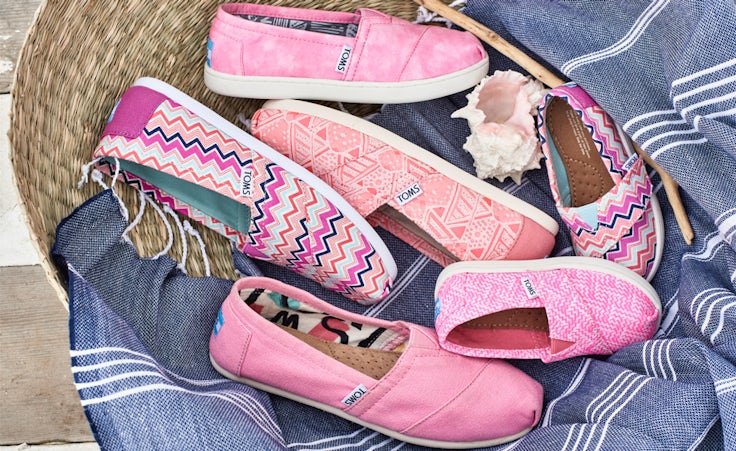60% of content created by brands is ‘just clutter’
The majority of content created by brands is having little or no impact on business results or people’s lives, according to Havas’ latest ‘Meaningful Brands’ study.

Some 60% of the content created by the world’s leading 1,500 brands is “just clutter” that has little impact on consumers’ lives or business results.
That is the conclusion of a new report by media agency Havas. For the first time this year, The ‘Meaningful Brands’ study looked at the role of content and whether it has value or not. This is in response to the growing importance of content and the customer experience, and as media agencies try to figure out their role in this changing landscape.
The study, which questioned 375,000 people across 33 countries, found that 84% expect brands to produce content. This can range from digital content such as podcasts or a web series to experiential events. Yet 60% said the content brands currently create is “poor, irrelevant or fails to deliver”.
There is a big benefit to getting content right. Havas found a 71% correlation between content effectiveness and a brand’s impact on consumers’ personal wellbeing. That is important because the greater impact a brand has on personal wellbeing, the more meaningful a brand becomes and the better business results it achieves.
According to the study, meaningful brands outperform the stock market by 206%, see a 48% increase in share of wallet and 137% greater returns on KPIs. The study defines ‘meaningful brands’ as those that have an impact on consumers’ personal, collective and functional benefits.
The research found that most brands do a “good job” on the functional and collective benefits but fall down when it comes to personal wellbeing. That suggests that while they are successfully explaining to consumers the benefits of using their products, they are failing to move their brand up the benefit ladder to explain its impact on their lives.
That failure means globally consumers would not care if 74% of brands disappeared, with that figure rising to 94% in UK. That is a similar level to previous iterations of the study and despite many brands’ attempts to show they have a brand purpose or stand for something.
READ MORE: ‘British consumers would not care if 94% of brands disappeared’
Maria Garrido, Havas Media Group’s global chief insights and analytics officer, says she also thinks the gap between those brands that score highly in the study and those that don’t perform as well is getting wider.
“The core brands such as Google and Ikea that are perennially in our ranking are doing better. There are certain brands in the global ranking now that weren’t last time so there is a shift from that standpoint but generally the gap is getting wider. And it comes down to personal benefits delivery. That is what drives business results. This should serve as a wake-up call,” she tells Marketing Week.
What content works
Garrido highlights a number of brands that are doing content well and therefore boosting how meaningful they are. Nicorette, for example, created three-minute videos showing what people who quit smoking had accomplished with the aim of inspiring others. In Havas’ results it got a performance score of 64%.
Compare that to Target, for example, which sponsored a live ad during the Grammy’s of Gwen Stefani performing her new single. That scored just 19%, which Garrido describes as “not spectacular in any way”. Neither brand are Havas clients.
Brands get rose-tinted glasses about entertaining people and think that is all consumers want.
Maria Garrido, Havas Media Group
Garrido says the study shows that brands need to understand what sort of content works for their audience and where the opportunity is. For example, consumers expect retailers to create content that ‘educates’ them, yet most are fixated on ‘entertaining’.
She cites Waitrose’s recent TV campaign showing a live feed of cows grazing as a prime example of the type of content that works for retailers. In fact, UK retailers are the “gold standard” by which retailers in other markets should judge themselves, says Garrido. While retail came out as one of the top content producers in the UK, it was only 11th out of the 13 that Havas measured globally.
For other categories there are opportunities beyond priority content. For example in healthcare, while content should primarily be about helping, educating and informing consumers also want to be inspired, hence the success of the Nicorette campaign.
“Brands get rose-tinted glasses about entertaining people and think that is all consumers want,” she explains. “What brands need to do is break down their content, take a step back and ask, for their industry, what the role of content is. Whether it is to inspire, educating, help, reward, inform or entertain then rank them and work out what is a ‘must have’, where the opportunities are and what they should not be focusing on at all.”
Tech sector leads meaningful brands list
Overall, tech sectors topped the meaningful brands list, with Google, PayPal and Whatsapp leading the global rankings and Whatsapp coming top in the UK. Part of the reason for this is because tech is so engrained in people’s lives, meaning these brands perform well from a personal benefits standpoint.
The global top 10
- PayPal
- YouTube
- Samsung
- Mercedes-Benz
- Nivea
- Microsoft
- Ikea
- Lego







